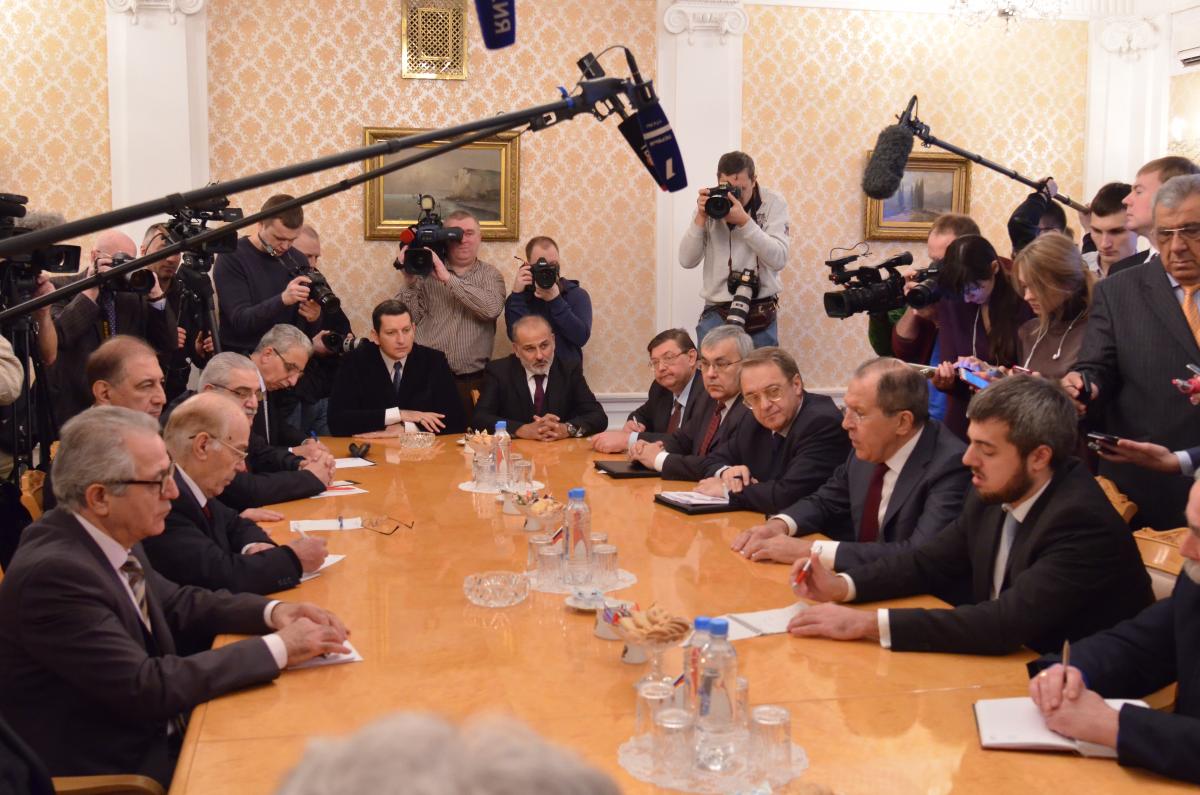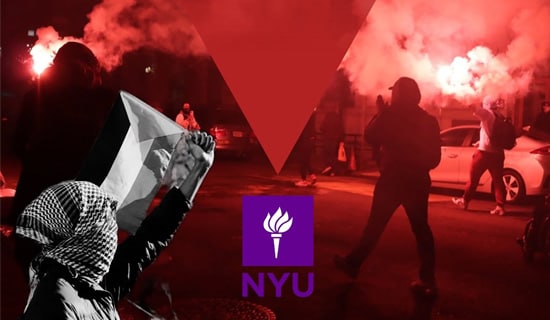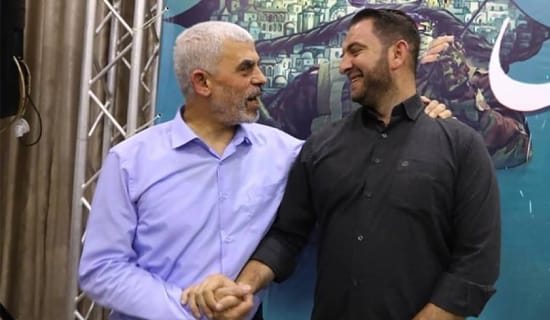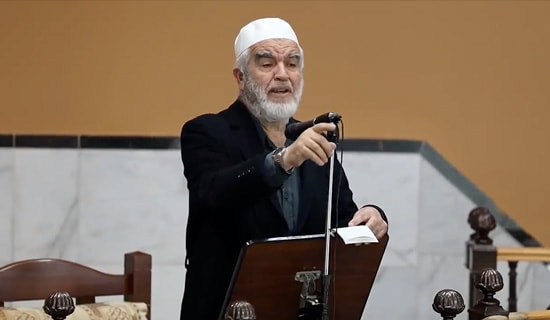During the peace talks in Kazakhstan’s capital Astana (January 23-24), Russian diplomats circulated to the Syrian opposition a draft constitution for Syria. However, the Syrian opposition rejected the draft. On January 27, during a meeting with the Syrian opposition in Moscow, Russia’s Foreign Minister Sergey Lavrov commented: "There is much idle talk about the draft constitution that was circulated at the Astana meeting. I would like to clarify the matter again, hopefully, for the last time. The draft we presented was an attempt to bring together and identify the common elements in the ideas expressed by the Syrian Government and the opposition, including those who are present here, over the past few years when we maintained contact and tried to find a way out of the Syrian crisis.
"Someone from the opposition delegation said the other day that the Syrians themselves must write their constitution and compared our draft to the constitution imposed on Iraq by Paul Bremer, an American official who headed the occupation authority of Iraq. This is a misleading position, because the Iraqi constitution was imposed on the people by the occupation authority as an ultimatum, while we have only offered our proposals to the Syrian parties without any intention of forcing them to adopt them. Based on the experience of the past five years, we are convinced that practical work can only begin if specific proposals are put on the table. I hope that all Syrians will read our draft while preparing for a meeting in Geneva and that it will provide an impetus for a practical discussion of ways to achieve accord in Syria in keeping with the Geneva Communiqué."
The Russian constitutional proposals suggest that the word "Arab" would be removed from the country's current official name (Syrian Arab Republic). The document stresses that the names of the "Syrian Republic" and Syria are "equal". As for the Kurdish minority, the draft suggests that "Kurdish cultural self-ruling systems and its organizations use both the Arabic and Kurdish languages equally."
The draft also suggests that the Syrian army is barred from interfering in politics: "Military forces and other armed groups are controlled by the civil society, defend Syria and its territorial integrity and cannot be used for oppressing the Syrian population and do not interfere into the political interests as well as do not play any role in powers transition." The draft proposes that the Syrian parliament’s power include "deciding on matters of war and peace."
The proposed constitution posits that Syria's borders can be changed only via a referendum: "Syrian territory is inalienable. State borders can be modified only via a general referendum conducted amongst all Syria's citizens and on the basis of the Syrian people's manifest will."
The desire to preserve Syria's territorial integrity is balanced by the introduction of federalism and a bicameral legislature whose upper house is the Assembly of Territories.
The draft also stresses the supremacy of international law: "The commonly recognized principles and provisions of the international law and Syria’s international treaties are an integral part of its legal system. If an international treaty establishes different rules than that provided by Syrian law, then the rules of the international treaty will be applied."
Below are excerpts from Russia’s draft Constitution for Syria which appeared in a link supplied by Mikhai Khodarenok in his article "Inevitable Constitution" published in Gazeta.ru on January 27, 2017:
:

(Source: Mid.ru, January 27, 2017)
Draft
Constitution Of The Syrian Republic
The People of Syria, continuing their generations-long traditions of statehood, understanding its responsibility to the past, current and future generations, fully determined to strengthen freedom and equity, assuring their adherence to the Charter of the United Nations, Charter of the Arab League, Charter of the Organization of Islamic Cooperation, the Universal Declaration of Human Rights and the Declaration on the Rights of Persons Belonging to National or Ethnic, Religious and Linguistic Minorities, solemnly proclaim their following intentions:
- To guarantee the state's security, independence, sovereignty and territorial integrity;
- To live in peace and friendship with other nations, to obtain the approval civil society;
- To build a law-abiding, democratic state, providing the supremacy of law as an expression of the popular will;
- To provide everyone with a decent standard of living in accordance with a just social and economic order;
In the name of the above enumerated lofty intentions this Constitution enters into force through a popular referendum.
Chapter 1: Fundamental Principles
Article 1:
1) The Syrian Republic is an independent, sovereign and democratic state, based on the principles of popular rule by people, legal supremacy, universal equality before the law, social solidarity, respect for rights and freedoms and equality of rights and duties for all citizens without any differences or privileges. The appellations Syrian Republic and Syria are equal
2) The people's unity is a basis for Syria, as represented by a common and indivisible motherland for all its citizens. Maintaining national unity and Syria's territorial integrity is a duty of the state and all its citizens.
3) The protection of cultural diversity in Syrian society is guaranteed in the same way as national heritage and reinforcing national unity.
Article 2:
1) Syria is a state with republican governmental form.
2) The sole source of state power is the multinational and multicultural people. The people have a sovereign right to define their own destiny freely and independently. The people execute their sovereign right through national voting -referendum and via their representatives, elected in national, general, equal, personal, direct and secret ballot.
3) No one except for those elected with full powers has the right to represent the people, speak in the people's name of people and act in the name of the people.
4) No part of the Syrian people, no social group or organization can arrogate powers to themselves to exercise authority. Such arrogation of authority is considered a serious crime.
5) No person may simultaneously serve as a National Assembly deputy, a Territorial Assembly member, president of the republic, prime minister, deputy prime minister, minister or member of the supreme constitutional court.
6) No person holding citizenship other than Syrian citizenship may be a National Assembly deputy, a Territorial Assembly member, president of the republic, prime minister, deputy prime minister, minister or member of the supreme constitutional court.
7) The transfer of authority must take pace peacefully, in the democratic way defined by the constitution and by law.
Article 3:
In Syria all religions and religious organizations are respected, freedom to fulfill all religious rituals, which do not undermine public order, is guaranteed. Religious organizations are equal before the law.
Article 4:
1) The state's official language is Arabic. The law defines the ways the official language is used.
2) The Kurdish cultural self-ruling systems and its organizations use both the Arabic and Kurdish languages equally.
3) Syrian citizens are guaranteed the right to educate children in their mother tongue in state educational institutions as well as private school facilities in conformity with educational standards.
4) Every region in conformity with the law, may use the language of the local majority as a supplement to the official language should this be approved by local referendum.
Article 5:
1) The political system of the state is based on the principles of political pluralism. Authorities are elected democratically via secret ballot.
2) The political parties should respect the constitutional order, democratic principles, the sovereignty and territorial integrity of the state.
3) The norms and procedures, tied to the formation of political parties are to be defined by law.
4) State positions or state resources may not be used for political, electoral or partisan objectives.
Article 6:
1) Ideological diversity is recognized in Syria. No single ideology may be imposed as "state ideology" of be compulsory. Social organizations are equal before the law.
2) The state guarantees security, as well as respect for the rights and freedoms of ethnic and religious minorities.
3) The establishment and functioning of political parties or other civil organizations, whose goals or actions are directed at the violent change of the fundament constitutional structure, undermining the integrity and security of the state, exercising terror, establishing armed groups, fomenting discrimination based on religious, racial, national, tribal, sectarian, class, professional, gender or ethnic origin, is prohibited. Such organizations can't be a part of socio–political life in Syria.
4) Syria condemns terror in all forms and guarantees the protection of its territory and population against terror threats.
Article 7:
3) The commonly recognized principles and provisions of the international law and Syria’s international treaties are an integral part of its legal system. If an international treaty establishes different rules than that provided by Syrian law, then the rules of the international treaty will be applied.
Article 8:
2) Syria rejects war as a way to assault the independence of other countries and as method for settling international conflicts.
Article 9:
SUPPORT OUR WORK

2) Syrian territory is inalienable. State borders can be modified only via a general referendum conducted amongst all Syria's citizens and on the basis of the Syrian people's manifest will.
Article 10:
4) Military forces and other armed groups are controlled by the civil society, defend Syria and its territorial integrity and must not be used as a tool for oppressing the Syrian population and do not meddle in the sphere of political interests as well as do not play any role in transfers of power.
5) The organization of military or paramilitary activities, outside governmental authority is prohibited.
Article 12:
5) The state ought to provide women with all the possibilities to make effective and full contribution to political, economic, social and cultural life, and to proceed towards eradication of boundaries, effecting women's participation in society building.
Article 13:
2) The citizens are admitted to the civil service on an equal basis. The law governs hiring practices for the civil service, rights and duties of the state servants.
Article 15:
1) Syria is comprised of administrative regions.
2) The number of regions, their borders and status are defined by the law.
3) The actions of local administrations are based on the principles of powers decentralization and separation of powers. The law establishes the relations between the local administrations and the central authority…
4) Status of Kurdish cultural autonomy is defined by the law.
Chapter 2: Human And Civil Rights And Freedoms
Article 18:
1) Everyone enjoys the right to life, security and freedom. The state guarantees these rights. Deprivation or limitation of these rights is prohibited, with the exception of cases prescribed by the law rendered by the competent judicial authority.
2) All are equal before the law regardless of their gender, race, nationality, origins, skin color, religious affiliation, personal convictions or worldviews, financial or economic status.
Article 19:
2) Citizens, male and female, enjoy the right of participation in state's affairs and actualize their political rights including the right to vote, the right to elect or be elected.
3) It is prohibited to forcibly coerce anyone to join to any political party, society, organization and it is prohibited to forcibly coerce anyone to maintain their membership in such organizations.
Article 20:
1) Everyone is guaranteed freedom of thought, expression, conscience and confession. No one may be compelled to express his opinions or convictions or abstain from them.
3) Everyone enjoys the right, according to the law, to participate in assemblies, peaceful demonstrations and labor strikes.
4) Everyone enjoys the right to freely seek, receive, transfer, produce and disseminate information by any legal method. The state guarantees by law a freedom of the press and mass media.
5) Propaganda or agitation, aimed at arousing social, racial, national or religious hatred, propaganda of social, national, religious and language superiority, is prohibited.
Article 21:
1) Syrian citizenship is defined by law.
2) The Syrian citizen may not be stripped of Syrian citizenship.
3) The Syrian citizen may not be deported from Syria or extradited to any foreign state.
4) Every citizen has a right to enter or exit the state's territory unless provided otherwise by the decision of the competent court or state prosecution in accordance with the law.
5) The extradition of persons, persecuted for their political beliefs, to other states is not allowed...
Article 22:
Everyone enjoys the right for personal inviolability, inviolability of dwelling, right to personal and family confidentiality.
Article 31:
1) Punishment is personal – there can be neither crime nor punishment which are not specified by law.
2) Everyone should be presumed innocent, unless his guilt is deemed established by a judicial ruling.
Article 32:
2) No one may be tortured or humiliated. The law should define the punishment for those who act in that way.
3) Anyone arrested should be informed of his rights and the reasons for his arrest and may not be imprisoned except by the order of the competent judicial organ.
4) Anyone condemned by a judicial decision and who has served his term, has the right to government compensation for the harm caused if the judicial ruling is recognized as unlawful.
Chapter 3: The Legislature
Article 34:
The legislative power is performed in the Syrian people's name by the National Assembly and Assembly of Territories under the procedures established by the constitution and the law.
Article 35:
1) Members of the National Assembly are elected in general, free and equal elections by secret ballot. They serve as represent all peoples of Syria.
2) The National Assembly's term of office is four years commencing with the date of its first session.
3) The National Assembly continues its sessions if the new Assembly is not elected. The National Assembly remains the acting body until the first session of the new Assembly.
Article 40:
1) The Assembly of Territories is formed with the aim of guaranteeing participation by the administrative regions' representatives in adopting legislation and governing the state.
2) The Assembly of Territories consists of representatives of administrative regions.
Article 41:
1) The National Assembly and Assembly of Territories conduct their sessions separately.
2) The National Assembly and Assembly of Territories may convene together for elections or to listen to the Prime-Minister's or President' address, an address by a foreign country's leader and in other circumstances prescribed by the constitution and the law.
Article 43:
The National Assembly is assigned the following functions:
1) Adopting the laws;
2) Setting the presidential elections;
3) Deciding the issue upon the submission of a non-confidence vote against the government;
4) Ratifying international agreements and conventions;
6) Adopting decisions on amnesty;
6) Deciding the issue of terminating a MP's power.
Article 44:
The Assembly of Territories fulfills the following functions:
1) Approving laws;
2) Deciding the issue upon the submission of a no-confidence vote against the government;
3) Deciding on matters of war and peace;
4) Dismissal of the President from his responsibility [impeachment];
5) Approving the Presidential decision on introducing a state of emergency and general mobilization.
6) Appointment of judges to the Supreme Constitutional Court
7) Appointment of the Syrian National Bank's chairman and his dismissal from office.
Article 46:
6) In the event of disagreement between the National Assembly and the decision of the Assembly of Territories, a law will be considered as having passed if on a repeat vote it is supported by no less than two thirds of the total number of National Assembly deputies.
Chapter 4: Executive Power
Article 48:
The executive powers are performed by the president and the government in the people's name under the constitution's provisions.
Article 49:
1) The president is elected for a seven-year term by Syria's citizens via general, equal, direct and secret ballot elections.
2) The same person cannot occupy the post of president for more than two terms.
Article 50:
A candidate for presidency should not be younger than 40-years old and must hold Syrian citizenship.
Article 59:
The President of the Republic may declare a referendum on important matters influencing the country's supreme interests. The results of the referendum are binding and enter into force upon the date that the President of the Republic announces their results.
Article 60:
1) The armed forces are subordinate to the president of the republic as well as other armed units. The president performs the function of supreme commander of the armed forces and armed units.
2) In case of aggression or a threat of aggression against Syria as well as threat to the security of the state, the president... may according to the law introduce a state of emergency throughout the entire country or in certain parts of the country subject to the prior approval of the Assembly of Territories. During the state of emergency period the National Assembly and Assembly of Territories and the President continue to function, likewise, a no-confidence vote for the government may not be introduced.
Article 61:
1) The President of the Republic may be impeached by the Assembly of Territories only if an indictment has been submitted by the National Assembly against the President implying high treason or the commission of other serious crime, approved by the High Constitutional Court, which states that signs of criminality in the Presidential actions exist and that established procedures for filing charges have been followed..
2) The decision by the Assembly of Territories to impeach the president and remove the president from office should be adopted by two thirds of the votes of the total number of the Assembly deputies upon the motion of no less than a third of the deputies the National Assembly.
3) The decision by the Assembly of Territories to remove the president from office must be adopted within 90 days term after the filing of the indictment by the National Assembly. If during this term the Assembly of Territories does not accept the impeachment decision, the indictment against the President is considered to be dropped.
Article 64:
2) The president fills the role of appointing the prime minister, his deputies and ministers taking into consideration the proportionality of representing all ethnic-religious groups of Syria's population. Some positions should be assigned to ethnic and religious minorities...
Article 70:
The National Assembly, the Assembly of Territories and the President of the Republcc may demand the criminal prosecution of the prime-minister, his deputies and ministers for actions, taken in the performance of their duties. If any member of the government is brought to justice, this implies that he ceases to execute his functions.
Article 71:
The government resigns upon the following:
1) The president concludes his term of office
2) In case a no-confidence vote is approved.
Chapter 4: Judicial Powers
Article 73:
1) The judges are independent and subordinate only to the Constitution and the Law
Article 79:
The High Constitutional Court should not review the constitutionality of laws carried by referendum and having obtained popular approval.
Chapter 6: Final And Transitional Provisions
Article 82:
The acting president's term of duties ends after 7 years starting from the date of his presidential oath. He has a right to be reelected President of the Republic. Constitutional norms regarding the terms of his duties and terms of duties will come into force starting from the next presidential elections.[1]
[1] Assuming that the Russians will want Bashar Assad as the acting president, this means that he can serve for seven years and two additional terms.




